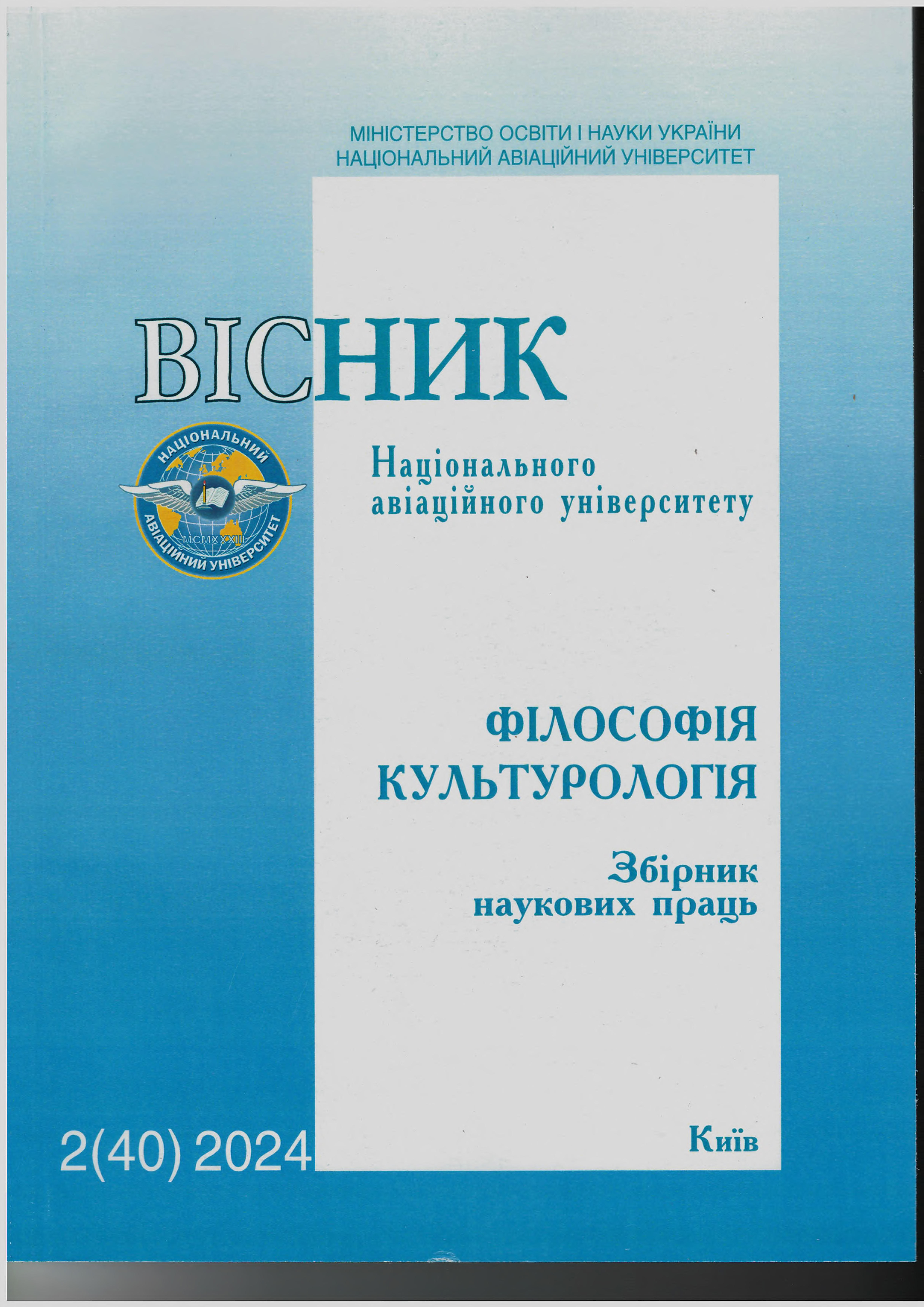Transformation of Individuality in the Context of Modern Communicative Processes
DOI:
https://doi.org/10.18372/2412-2157.40.19271Keywords:
individuality, communication, network society, transformation, social institutions, identity, globalizationAbstract
The formation of individuality occurs exclusively within the social space, relying on interpersonal communication. This prompts the question: how are individuation and societal communicative processes interconnected? The article explores modern social reality through the lens of individuality transformation. The aim is research on the connection between the transformation of individuality in the context of changes in the information space and the characteristics of interpersonal communication. Research methods employ discourse theory and analysis, comparative analysis, as well as systemic-logical, analytical, synthetic, and structural methods. Interdisciplinary and dialectical approaches are also utilized, enabling the integration of philosophical-social, psychological, and sociological concepts to understand the dynamics of modern society. Research results. The article presents the stages of individuality formation. It is revealed that this process begins as a reaction to the complication of the social structure, the differentiation of a person's social environment. The modern network society, built on the principles of hypertext and intertextuality, creates new prerequisites for the transformation of individuality, driven by changes in social mobility, culture, political institutions, and spatial-temporal structures. The new individuality is characterized as a hypertextual, nonlinear form that combines the uniqueness of experiences with the growing influence of information flows, bearing both positive (self-determination, identification) and negative (deviations, asociality) connotations. Its core structural elements include the ability to analyze information, form meaningful interpretations, and maintain social uniqueness within the conditions of informational fluidity. Discussion. The new ontology is characterized by the simultaneous interaction of geographically distant individuals, physical non-representation, emotional impoverishment, anonymity, and the lack of non-verbal cues. It also includes increased psychological comfort, minimal behavioral regulation, flexibility in shaping social roles and status, diverse communication means, voluntary interactions, and the absence of strong ties to specific social groups or consequences for deviant behavior. Conclusions. The essence of social reality in the information society has given rise to numerous, often controversial theories. In this context, the concept of the "communicative personality" is viewed as an integral characteristic of an individual, manifested through linguistic, cultural, and behavioral aspects of communication.
References
Castells M. Informationalism, networks, and the network society: a theoretical blueprint. The network society: a cross-cultural perspective; edited by M. Castells. Cheltenham; Northampton, MA Elgar, cop. 2004. 1999. 640 с.
Mokyr J. The lever of riches: technological creativity and economic progress. Oxford: Oxford University Press, 1990.
Webster F. Theories of the Information Society. Second Edition. L.: Routledge, 2002.
Шоріна Т. Г. Ідеї «Нового Просвітництва» як соціально-філософська альтернатива осмисленні проблем глобальної безпеки. Вісник Національного авіаційного університету. Серія: Філософія. Культурологія. № 2 (30). 2019. С. 100-105


